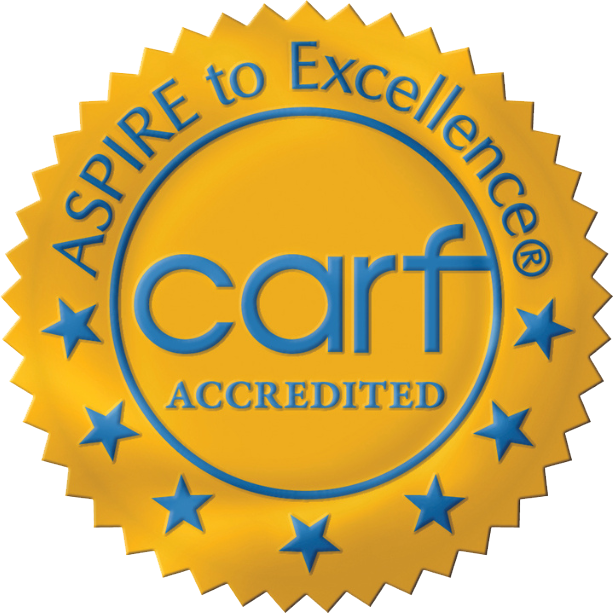Having a family member suffer from a brain injury can be a challenging event to process. While focusing on physical rehabilitation is necessary, attending to brain injury survivors’ emotional and psychological well-being is also essential. This blog post will explore how family members can support their loved ones as they adjust to life after a brain injury.
We’ll discuss strategies for managing a brain injury’s psychological impact and ways to encourage long-term emotional healing. Finally, we’ll identify sources for additional information and support. If you or a loved one is struggling with the emotional effects of a brain injury, this blog post may offer some insights and encouragement.
What is a brain injury, and how can it affect mental health?
Brain injury, also known as traumatic brain injury (TBI), is any type of damage to the brain caused by an accident, stroke, or other medical condition. It can result in physical, cognitive, and emotional problems. It can impact mental health in various ways, often leading to changes in mood, impulsivity, aggression, and even personality.
Understanding the effects of brain injury on mental health is essential so that treatment and support can be offered promptly. Common psychological symptoms often reported after a brain injury are depression, anxiety, changes in behavior, disturbed sleep, fatigue, and poor concentration.
There are many treatments available for brain injuries that are designed to reduce their effect on mental health. These include cognitive therapy, supportive psychotherapy, medication, lifestyle modifications, and physical activity. Proper support and interventions enable the management of brain injury symptoms and improve mental health.
The challenges of coping after a brain injury
Coping after a brain injury can be especially difficult since the very abilities used to interpret, understand, and respond to life’s demands may have been damaged.
When coping after a brain injury, there are three key areas of difficulty to recognize:
- Physically, affected individuals may need to relearn how to move, talk, and perform everyday activities.
- Emotionally, people can struggle to manage difficult feelings, complicating their interactions with others.
- Cognitively, one may battle with decision-making and problem-solving. Socially, it can be hard to reconnect with people or form new relationships.
Coping after a brain injury requires patience, determination, and support. With the right amount of help, patients can slowly adapt to their new lives, but the road is often long and challenging. It is essential that they have a dedicated support network of family and friends to help them through the challenges that come with a brain injury.

What are the best practices for brain injury recovery?
Recovery is an individual process, and success depends on finding the right combination of approaches. Here are some of the best practices for brain injury recovery:
- Get enough sleep: Not getting enough sleep can disrupt the body’s ability to repair itself and heal from a traumatic brain injury (TBI). Aim for 8 hours of quality sleep each night.
- Avoid alcohol: Using drugs and alcohol can disrupt the brain’s healing process by causing inflammation and slowing down its ability to repair itself. Stick to natural methods of relaxation and wellness like massage, yoga, and meditation.
- Stay hydrated: Drinking plenty of fluids helps keep the brain hydrated, essential for optimal brain health.
- Eat a healthy diet: Eating a nutrient-rich diet full of whole grains, fruits, and vegetables can help optimize brain health and recovery from a brain injury.
- Exercise regularly: Exercise helps stimulate healing and regeneration in the brain and increases blood flow to the area. It can help manage symptoms of depression and anxiety, both common after TBI.
- Reduce stress: Reducing stress can help manage symptoms of anxiety and depression and improve the overall quality of life. Techniques such as mindfulness, deep breathing, or yoga can effectively manage stress.
- Seek professional help: Working with a psychologist or therapist can help manage symptoms of depression, anxiety, or other psychological issues related to TBI.
- Avoid high-risk activities: Avoiding activities that put the head and brain at risk, such as sports-related activities or contact sports, is essential for preventing further damage to the brain.
- Take time out for fun and relaxation: Focusing on hobbies, exploring a new interest, or simply relaxing and enjoying time with family and friends can help reduce stress and improve the overall quality of life.
Tips for Supporting Emotional and Psychological Well-Being After a Brain Injury

Following a brain injury, emotional and psychological well-being can be seriously impacted. Surrounding yourself with supportive family and friends as you navigate the recovery process is essential.
Here are a few tips to help promote positive emotional and psychological health after a brain injury:
- Remain positive
Keeping a positive outlook helps manage emotional resilience. Conversations with family, friends, and colleagues can help maintain positive relationships and attitudes.
- Be patient
Adjusting to life after a brain injury takes time. Practice patience and remember that recovery is a journey, not a destination
- Practice self-care
Taking time for yourself is essential for recovery. Eat nutritious food, get plenty of rest, exercise regularly, and take daily breaks.
- Reestablish goal
After a brain injury, refocus on short-term goals and build from there. Prioritizing goals helps establish a long-term recovery plan.
- Utilize resources
Obtain the necessary support and resources to manage daily tasks and establish independence. These can include therapy, medication, and support groups.
- Stay connected
The psychological effects of brain injury can be crippling, leaving individuals feeling isolated and alone. To combat the effects of loneliness, staying socially connected is key. Connect with survivors, family, and friends and share your emotional journey.
- Prioritize mental health
Mental health is just as important as physical health. Ask for help if needed, and don’t hesitate to ask for support.
- Establish a support group
Connecting with people undergoing similar emotional challenges can provide invaluable support and comfort. Support groups can offer assurance that you’re not alone in your struggles.
- Balance rest with activity
Coping with the emotional trauma of a brain injury or its long-term effects can be exhausting. Taking frequent breaks and giving yourself plenty of time to rest is essential. At the same time, find ways to engage in enjoyable, low-intensity activities that provide stimulation.
- Seek professional help
Getting help from a mental health professional or a neurologist is critical to managing a brain injury’s mental and emotional effects. It’s essential to find someone knowledgeable about brain injuries and their effects.
Achieve the best outcomes possible at Progressions Rehabilitation!
At Progressions Rehabilitation, we understand how challenging it can be to cope with a brain injury. We believe in providing individuals with the support and resources to promote emotional and psychological well-being after a brain injury. Our clinicians specialize in individualized counseling and trauma-informed care that considers each person’s unique recovery journey.
With in-person and teletherapy services, we work with individuals to create a safe, supportive environment that focuses on healing and stability. We strive to help people maximize their potential by gaining the essential skills to lead a happy, healthy life. Don’t wait any longer to get the help you need.
We offer the following services to support emotional and psychological well-being after a brain injury:
- Group homes for brain injury patients
- Group homes for spinal cord injury
- Assisted living for brain injury
- Neuro rehabilitation in Michigan
Contact us today to see how we can help you increase your emotional and psychological well-being after a brain injury.

***
The material contained on this site is for informational purposes only and DOES NOT CONSTITUTE THE PROVIDING OF MEDICAL ADVICE, and is not intended to be a substitute for independent professional medical judgment, advice, diagnosis, or treatment. Always seek the advice of your physician or other qualified healthcare provider with any questions or concerns you may have regarding your health.



